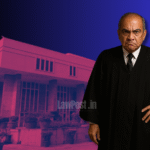In a significant ruling, the Kerala High Court has clarified that medical negligence leading to death cannot automatically be treated as culpable homicide not amounting to murder under Section 304 of the Indian Penal Code (IPC). The Court stressed that such a charge would apply only when a medical professional acts with the intent to cause death or has the requisite knowledge that death is a likely outcome.
The case pertained to a 2012 incident in Palakkad, where a surgeon performed an appendectomy on a 10-year-old girl and administered spinal anaesthesia without involving an anaesthetist. The child suffered cardiac arrest and died minutes after the procedure. A complaint filed by the girl’s mother led to the registration of a case and filing of a charge sheet under Section 304 IPC, asserting that the doctor acted with knowledge of the likely fatal consequences.
The surgeon had earlier sought discharge from the case in the Sessions Court, which was denied. He then approached the High Court for relief.
Justice Kauser Edappagath, while hearing the plea, observed:
“An act of medical negligence, even if resulting in death, would not automatically constitute culpable homicide unless there is intent or knowledge that the death would be a likely consequence. Medical negligence cannot be equated with culpable homicide.”
The Court further clarified that in cases of medical negligence, “if the death is due to failure to exercise reasonable care or a breach of duty by a medical professional, Section 304A may be invoked,” which deals with causing death by negligence, a lesser offence.
The defence argued that even if all allegations were accepted as true, there was no material to support prosecution under Section 304 IPC, as the requisite mental state—intent or knowledge—was absent.
In response, the prosecution relied on a medical board report concluding that the child’s death resulted from complications arising from spinal anaesthesia, which the surgeon had failed to manage appropriately.
However, the Court held that there was no prima facie evidence to suggest that the doctor had the mental awareness necessary to attract a charge under Section 304 IPC. It also noted that the doctor was a qualified and experienced professional and that MBBS holders are legally allowed to administer anaesthesia.
Thus, while acknowledging possible negligence, the Court concluded that the conduct did not meet the threshold for culpable homicide.
Case: Dr K Rajagoplan vs Regha & Anr. – Available on LAWFYI.IO








